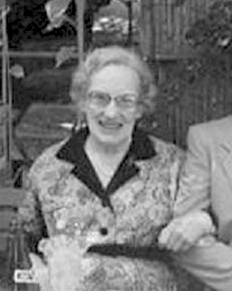Creation Myths (1972), Deus Faber
Kontext: Our whole tradition has trained us to think always of God as being outside the world and shaping its dead material in some form. But upon making a general survey of creation myths, we see that this type of God mirrors a rare and specific situation; it mirrors a state where consciousness has already markedly withdrawn, as an independent entity, out of the unconscious and therefore can turn toward the rest of the material as if it were its dead object. It also already shows a definite separation between subject and object; God is the subject of the creation and the world, and its material is the dead objects with which he deals. Naturally we must correct this viewpoint by putting it into its right context, namely, that the craftsman in primitive societies never imagined himself to be doing the work himself. Nowadays if you watch a carpenter or a smith, he is in a position to feel himself as a human being with independent consciousness, who has acquired from his teacher a traditional skill with which he handles dead material. He feels that his skill is a man-made possession, which he owns. If we look at the folklore and mythology of the different crafts in more primitive societies, we see that they have a much more adequate view of it. They all still have tales which show that; man never invented any craft or skill, but that it was revealed to him, that it is the Gods who produced the knowledge which man now uses if he does anything practical.
Marie-Louise von Franz: Zitate auf Englisch
Creation Myths (1972), Deus Faber
Kontext: Always at bottom there is a divine revelation, a divine act, and man has only had the bright idea of copying it. That is how the crafts all came into existence and is why they all have a mystical background. In primitive civilizations one is still aware of it, and this accounts for the fact that generally they are better craftsmen than we who have lost this awareness. If we think that every craft, whether carpenter's or smith's or weaver's, was a divine revelation, then we understand better the mystical process which certain creation myths characterize as God creating the world like a craftsman. By creating the world through such a craft he manifests a secret of his own mysterious skill.
"The Process of Individuation" - Part 3 in Man and His Symbols (1961) edited by C. G. Jung, p. 163
Kontext: The ego must be able to listen attentively and to give itself, without any further design or purpose, to that inner urge toward growth.... People living in cultures more securely rooted than our own have less trouble in understanding that it is necessary to give up the utilitarian attitude of conscious planning in order to make way for the inner growth of the personality.
Creation Myths (1972), Creation Renewed & Reversed
Kontext: In other words, the idea of the philosopher's stone of the alchemists is identical with the idea of the glorified body. This offers an archetypal approach to some Eastern ideas, because in different Eastern yoga practices and meditation the goal is to produce within oneself the so-called diamond body which is an immortal nucleus of the personality.
Quelle: Archetypal Dimensions of the Psyche (1994), The Self, p. 324 - 325
Quelle: Psyche and Matter (1992), p. 216
Kontext: Number, as it were, lies behind the psychic realm as a dynamic ordering principle, the primal element of which Jung called spirit. As an archetype, number becomes not only a psychic factor, but more generally, a world-structuring factor. In other words, numbers point to a background reality in which psyche and matter are no longer distinguishable.
Quelle: Alchemy: An Introduction to the Symbolism and the Psychology
Archetypal Dimensions of the Psyche (1994), The Anima as the Woman within the Man
Quelle: Archetypal Dimensions of the Psyche (1994), The Anima as the Woman within the Man, p. 311
Creation Myths (1995) 'Chains' (Genealogies), p. 326 Shambhala ISBN 0-87773-528-X
Quelle: Archetypal Dimensions of the Psyche (1994), The Animus, a Woman's Inner Man, p. 322 - 323
Archetypal Dimensions of the Psyche (1994), The Animus, a Woman's Inner Man
Quelle: On Divination and Synchronicity (1992), pp. 39-40
Archetypal Dimensions of the Psyche (1994), The Animus, a Woman's Inner Man
Archetypal Dimensions of the Psyche (1994), The Animus, a Woman's Inner Man
Archetypal Dimensions of the Psyche (1994), The Animus, a Woman's Inner Man
Archetypal Dimensions of the Psyche (1994), The Anima as the Woman within the Man
Quelle: Number and Time (1974), p. 53
Quelle: Psyche and Matter (1992), p. 40
Creation Myths (1972), Deus Faber
Quelle: Creation Myths (1972), Creation Renewed & Reversed, P. 331
Archetypal Dimensions of the Psyche (1994), The Animus, a Woman's Inner Man
Quelle: Number and Time (1974), p. .52
Quelle: Archetypal Dimensions of the Psyche (1994), The Animus, a Woman's Inner Man, p. 319 - 320
Archetypal Dimensions of the Psyche (1994), The Anima as the Woman within the Man
Quelle: Creation Myths (1972), Deus Faber, p. 140 - 141
